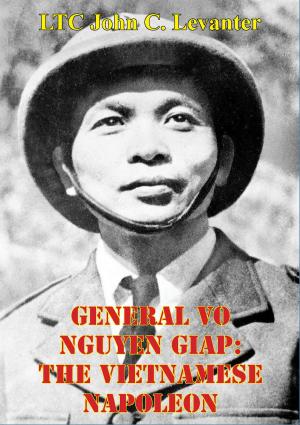Tecumseh: Vision Of Glory
Nonfiction, Social & Cultural Studies, Social Science, Cultural Studies, Native American Studies, History, Americas, United States, 19th Century, Biography & Memoir| Author: | Glenn Tucker | ISBN: | 9781786251701 |
| Publisher: | Normanby Press | Publication: | November 6, 2015 |
| Imprint: | Normanby Press | Language: | English |
| Author: | Glenn Tucker |
| ISBN: | 9781786251701 |
| Publisher: | Normanby Press |
| Publication: | November 6, 2015 |
| Imprint: | Normanby Press |
| Language: | English |
In the years just preceding the War of 1812 one man, an Indian, dominated the American frontier—Tecumseh. He emerges here as a vivid, splendid character, a man of unusual talents and noble aims, whereas in much previous history and biography he has been depicted as a baffling, sinister, often bloody figure—a man of inscrutable motives whose scheming for a time actually threatened to delay the settlement of the Northwest.
Tecumseh’s great oratorical powers, his statesmanship, his military acumen, his personal magnetism won him the passionate loyalty of his Indians and the admiration of even his white enemies. In nobility of character, in leadership and in devotion to a lost cause he suggests points of comparison with Robert E. Lee.
The need for this book is indicated by the fact that until its publication the standard biography has continued to be Benjamin Drake’s book first published in 1841 and ranks as a collectors’ item.
Tecumseh’s great vision was a confederation of all the Indian tribes to check the encroachment of the whites on the Indian lands. His journeys took him from the Mohawk River in the east to the Arkansas in the west, from Lake Superior to the Gulf of Mexico.
Mr. Tucker offers proof that the British in Canada did not push Tecumseh on war with the United States—as historians have claimed—but on the contrary Tecumseh urged the British to declare war.
The high point of Tecumseh’s point probably came when with Major General Brook he captured Detroit and made a sizeable American army to surrender. Only a few months later his forces, outnumbered and almost unsupported by their brave and futile stand on the Thames River. Tecumseh was killed, and his dream of a red empire broken. So ended the mighty vision and the greatest of the great chiefs.
In the years just preceding the War of 1812 one man, an Indian, dominated the American frontier—Tecumseh. He emerges here as a vivid, splendid character, a man of unusual talents and noble aims, whereas in much previous history and biography he has been depicted as a baffling, sinister, often bloody figure—a man of inscrutable motives whose scheming for a time actually threatened to delay the settlement of the Northwest.
Tecumseh’s great oratorical powers, his statesmanship, his military acumen, his personal magnetism won him the passionate loyalty of his Indians and the admiration of even his white enemies. In nobility of character, in leadership and in devotion to a lost cause he suggests points of comparison with Robert E. Lee.
The need for this book is indicated by the fact that until its publication the standard biography has continued to be Benjamin Drake’s book first published in 1841 and ranks as a collectors’ item.
Tecumseh’s great vision was a confederation of all the Indian tribes to check the encroachment of the whites on the Indian lands. His journeys took him from the Mohawk River in the east to the Arkansas in the west, from Lake Superior to the Gulf of Mexico.
Mr. Tucker offers proof that the British in Canada did not push Tecumseh on war with the United States—as historians have claimed—but on the contrary Tecumseh urged the British to declare war.
The high point of Tecumseh’s point probably came when with Major General Brook he captured Detroit and made a sizeable American army to surrender. Only a few months later his forces, outnumbered and almost unsupported by their brave and futile stand on the Thames River. Tecumseh was killed, and his dream of a red empire broken. So ended the mighty vision and the greatest of the great chiefs.




![Cover of the book Advice And Support: The Early Years 1941-1960 [Illustrated Edition] by Glenn Tucker](https://www.kuoky.com/images/2014/august/300x300/9781782899068-i9lY_300x.jpg)


![Cover of the book U.S. Marine Operations In Korea 1950-1953: Volume I - The Pusan Perimeter [Illustrated Edition] by Glenn Tucker](https://www.kuoky.com/images/2015/november/300x300/9781786254269-p1Qv_300x.jpg)

![Cover of the book Cavalry Experiences And Leaves From My Journal [Illustrated Edition] by Glenn Tucker](https://www.kuoky.com/images/2014/august/300x300/9781782894889-gf0g_300x.jpg)





